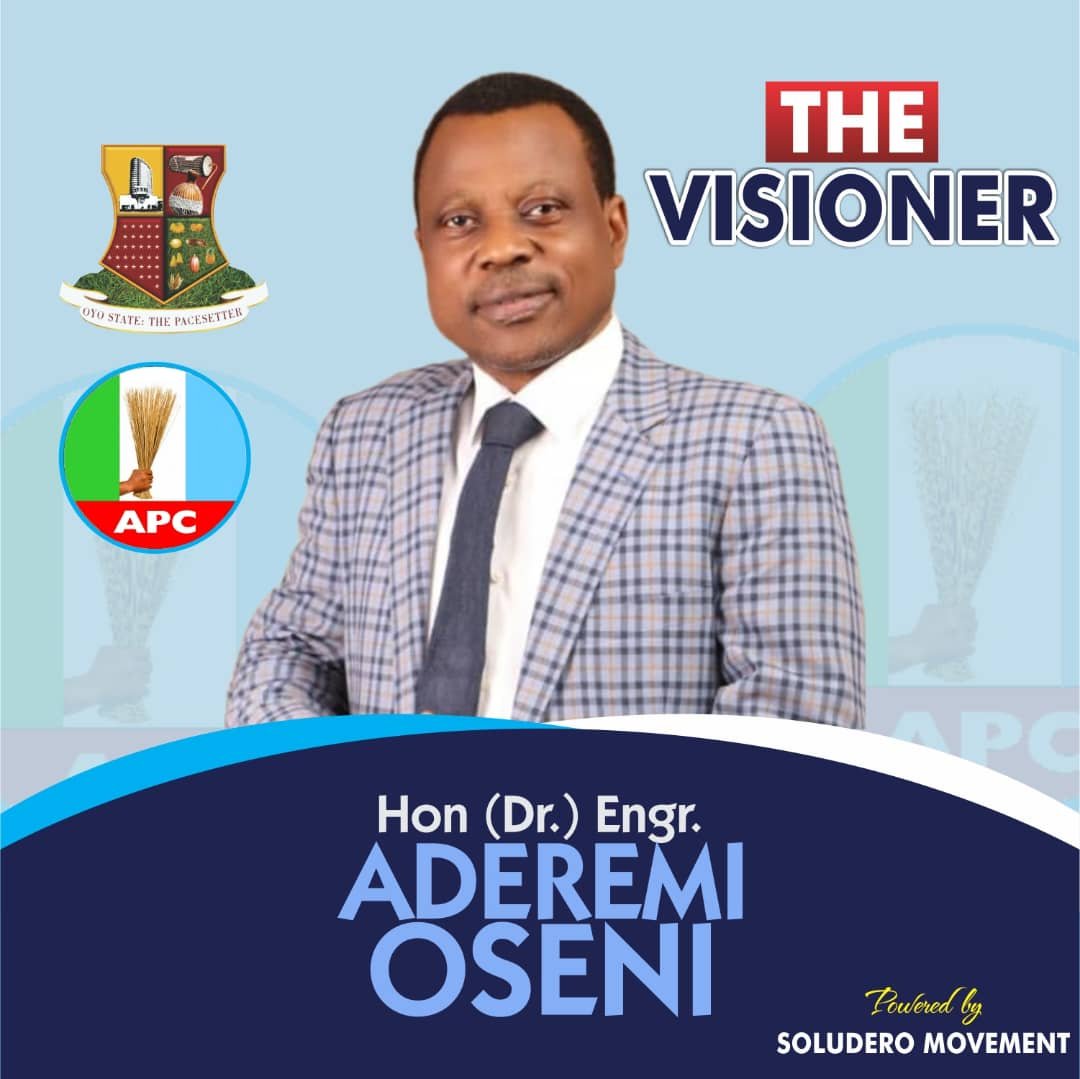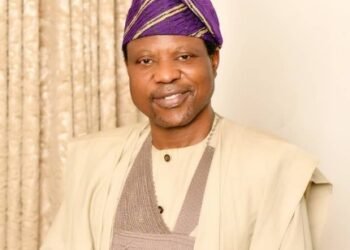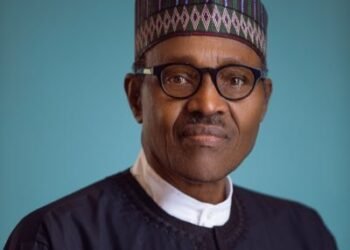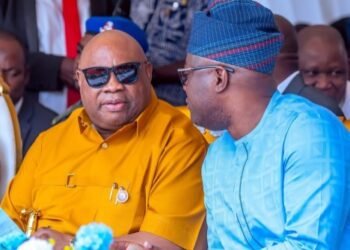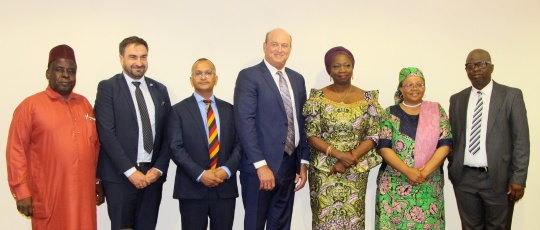As Nigeria progresses through 2025, the country faces a complex interplay of economic challenges, pervasive insecurity, persistent unstable power supply, and concerns over political consolidation. There is the need delve into these critical sectors, highlighting the prevailing pessimism and optimism shaping the country’s trajectory.
Nigeria is navigating one of its most uncertain political and economic moments since the return to democracy in 1999. From deepening poverty, worsening insecurity and erratic power to a gradual consolidation of political power, 2025 paints a picture of a nation in flux—caught between promise and peril.
A mixed bag: Economic growth amid hardship
On paper, Nigeria’s economy is growing. The Central Bank of Nigeria (CBN) projects a GDP growth rate of 4.1 per cent for 2025, up from 3.3 per cent in 2024. The optimism is largely driven by structural reforms, higher public investment, and attempts at diversification beyond oil. But beneath the surface, many Nigerians are not feeling the gains.
The International Monetary Fund (IMF) offers a more cautious estimate of 3.2 per cent, pointing to ongoing inflationary pressures, naira depreciation, and the country’s vulnerability to global oil price shocks.
The 2025 National Budget—₦54.99 trillion—is ambitious, but with oil still contributing the lion’s share of revenue, fiscal stability remains precarious.
Despite efforts to broaden the tax base and reduce subsidies—such as the 35 per cent cut to electricity subsidies—the cost of living continues to skyrocket.
According to the World Bank, inflation has pushed an additional 13 million Nigerians below the poverty line since 2023. Today, 129 million Nigerians are reportedly living in multidimensional poverty—lacking access to adequate healthcare, education, or clean water.
While reforms like the signing of a minerals pact with South Africa signal a push towards diversification, the impact will take years to materialise. For now, economic hardship is the lived reality for most Nigerians.
Insecurity: A national crisis without borders
Security challenges remain one of most intractable problems in Nigeria. The insurgency in the North-East persists, despite claims of progress. In the North-West, communities continue to be ravaged by banditry and kidnappings.
The North-Central remains a flashpoint for deadly farmer-herder clashes, which have become both economic and ethno-religious crises. In April 2025, over 40 people were killed in a single attack in Plateau State—a reminder that violence is still deeply entrenched.
The southern part of the country is not totally immune from the pervading security threats coming from the Northern Region – the South also have flashes of communal crisis, as recently witnessed in Osun State; reported herdsmen attacks in Ekiti and Ondo states; killings in the South-East; and upheavals in Bayelsa and Rivers states.
These conflicts not only displace populations and destroy livelihoods, but also erode investor confidence. The agricultural sector, once Nigeria’s economic backbone, is suffering massive losses due to the threat of rural violence.
Security spending takes up a significant chunk of the national budget, yet there are growing questions about effectiveness and accountability in the country’s counter-insurgency strategy.
Nigeria’s power problem: Why electricity supply remains unstable
Minister of Power, Adebayo Adelabu, reportedly claimed recently that 150 million Nigerians have access to constant power supply. This is however a claim that is far from the realities on ground. Despite decades of reforms and investments, erratic power supply continues to plague Nigeria, frustrating millions of households and crippling businesses across the country.
Nigeria has the capacity to generate over 13,000 megawatts of electricity, yet it rarely transmits more than 5,000 megawatts to the national grid. The reasons for this gap are complex but clear: aging infrastructure, gas supply issues, and inconsistent government policies.
Much of the country’s power infrastructure—especially transmission and distribution lines—is outdated and poorly maintained. Frequent system collapses and prolonged blackouts are common.
Meanwhile, many power plants depend on gas, but pipeline vandalism and supply disruptions often limit their output.
The situation is worsened by electricity theft, non-payment of bills, and weak regulatory oversight. These challenges not only reduce revenue for power companies but also discourage further investment in the sector.
As a result, millions of Nigerians rely on generators, which are expensive to run, and greatly contributing to environmental pollution. Others are turning to solar power, though the cost of installation remains high for most households.
Experts say solving Nigeria’s power crisis requires a mix of strong political will, sustained investment, and policies that support long-term private sector participation. Until then, reliable electricity will remain a luxury rather than a right.
Power woes persist despite reforms and investments
Despite concerted efforts and reforms, Nigeria continues to grapple with erratic power supply, a challenge that hampers economic growth and daily life for millions.
Current state of power generation
As of the end of 2024, Nigeria’s power generation capacity increased by 34 per cent, reaching a peak of 5,528 megawatts (MW), up from 4,100 MW in 2023. This improvement is attributed to the addition of the 700 MW Zungeru hydroelectric power plant and enhanced output from existing hydro and thermal plants. However, this figure still falls short of the country’s installed capacity of over 13,000 MW, highlighting the under-utilisation of available resources.
Infrastructure challenges and economic impact
The national grid’s fragility remains a significant concern, with frequent collapses leading to widespread blackouts. In 2024 alone, the grid experienced ten collapses, affecting major cities like Abuja, Lagos, and Kano. These disruptions contribute to an estimated economic loss of $29 billion annually.
Government initiatives and financial constraints
The Federal Government acknowledged the need for substantial investment to achieve a stable power supply. Minister of Power, Adebayo Adelabu, reportedly stated that approximately $10 billion is required over the next decade to ensure 24-hour electricity nationwide.
Adelabu emphasised the importance of private sector involvement, noting: “Government cannot do it alone; this is why we have to look for organized private sector funding, while still retaining government interest and ownership.”
In a bid to improve the sector’s financial viability, the government reduced electricity subsidies by 35 per cent following a targeted tariff hike for high-usage consumers. This move generated an additional ₦700 billion in revenue, reducing the tariff shortfall from ₦3 trillion to ₦1.9 trillion.
Decentralisation and renewable energy efforts
To address the power supply challenges, the government is exploring decentralisation. A law enacted in 2023 allows states to generate and transmit power independently, aiming to reduce the burden on the national grid and attract investment.
Furthermore, the government secured a $750 million loan from the World Bank to develop mini-grids and off-grid solutions, targeting rural communities. This initiative aims to provide electricity access to approximately 13 million Nigerians.
However, while there have been strides in increasing generation capacity and implementing reforms, the power sector in Nigeria still faces significant hurdles.
Addressing infrastructure deficiencies, ensuring financial sustainability, and fostering private sector participation are crucial steps toward achieving a reliable and efficient power supply for all Nigerians.
Democratic backsliding and rise of one-party dominance
Perhaps more troubling than the economic or security concerns is the slow drift towards what critics describe as a one-party state. The ruling All Progressives Congress (APC) now dominates the political space, having expanded its reach through strategic defections, electoral victories, and increasing influence over key democratic institutions.
Many are of the view that the ruling APC, under President Bola Tinubu, has weaponised democratic tendencies to suppress other major political parties. It was in this light that many saw the recent suspension of Governor Siminalari Fubara of Rivers State and the declaration of a State of Emergency on the state as part of a concerted effort by the Tinubu-led administration to further muzzle the opposition.
And the opposition parties are not helping the situation!!! Discordant tunes are oozing out of the three major political parties – the Peoples Democratic Party (PDP), Social Democratic Party (SDP), and Labour Party (LP) – almost on daily basis. The three parties appeared not really ready to effect a change of leadership by 2027.
Four governors elected on the platform of the PDP are speculated to be considering to defect to the APC to back President Tinubu’s bid for a second term in 2027. They included Umo Eno of Akwa Ibom State, Sheriff Oborevwori of Delta State, Peter Mbah of Enugu State, and suspended Governor Fubara of Rivers State.
The Northern Youth Leaders’ Forum (NYLF) and civil society groups have warned that Nigeria is “sliding into one-party rule,” citing declining opposition strength, compromised electoral processes, and shrinking civic space.
Former Ekiti State acting governor, Right Honourable Tunji Odeyemi, also recently called on Nigerians to resist what he termed a “calculated attempt to undermine multiparty democracy.”
The weakening of institutional checks and the centralisation of power in the executive arm of government have led to widespread concern about the future of Nigeria’s democratic experiment. With the opposition in disarray and voter apathy rising, the 2027 general election could either solidify or challenge the trend toward political monopolisation.
Mr Olufemi Aduwo – CEO, Rights Monitoring Group & Centre For Convention On Democratic Integrity and Chairman, Board of Directors,at Centre for Convention on Democratic Integrity Ltd/Gte (CCDI), non-governmental organisation – told Newscoven.com recently that the APC will easily coast home to victory in 2027, should the PDP, SDP and LP failed to unite, and present a common candidate against incumbent President Tinubu.
Between pessimism and possibility
Despite these challenges, pockets of resilience remain. The tech sector continues to grow, driven by young innovators. Diaspora remittances—over $20 billion annually—provide a lifeline for many families. Efforts to expand access to solar energy and small-scale infrastructure projects in rural areas are showing promise.
Yet, for many Nigerians, optimism is waning. The gap between government rhetoric and lived reality is widening, and the absence of tangible improvements in key sectors is fueling disillusionment.
Whether Nigeria can pivot toward inclusive governance, economic reform that touches the grassroots, and meaningful security solutions will define its trajectory—not just for the remainder of this administration, but for the coming decade.
Conclusion
The current state of Nigeria reflects a nation at a defining crossroads. With a battered economy, rising insecurity, erratic power supply, and democratic backsliding, the need for visionary leadership and institutional integrity has never been more urgent.
The question remains: Will Nigeria confront its demons, or continue down a path that history may judge unkindly?
•Falade is the CEO/Editor-in-Chief, Newscoven.com


















